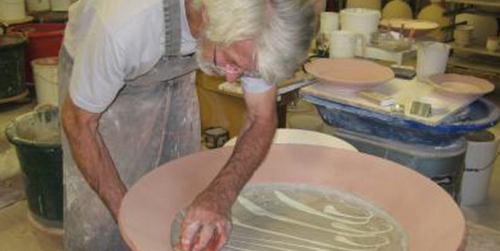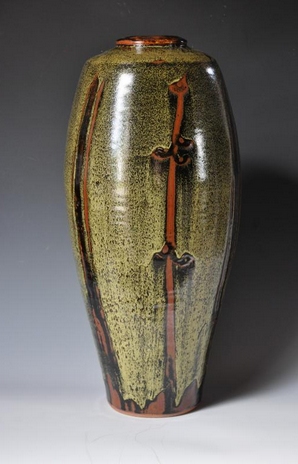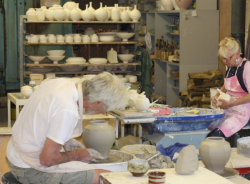
David Frith is an internationally acclaimed potter who will be teaching the hugely popular Throwing course at Potclays in March and October of this year.
David lives and works at Brookhouse Pottery in Denbigh, which he shares with his wife Margaret. David and Margaret celebrated fifty years of potting in 2013 with a major exhibition at Ruthin Craft Centre. David's own work will be exhibited at Ceramics Art London at the beginning of April.
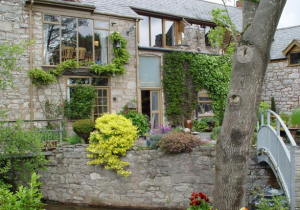
How does your day start?
Every day is different but I get up and let the hens out about daybreak. I can then get a couple of hours of quiet in the studio before the phone calls start. I love that peaceful time of day. Then it's back in the house for breakfast and in the studio again by 9 a.m. for the day 'proper' to begin.
What sparked your own interest in arts and crafts?
My father was an excellent painter and decorator and we made barns and farm buildings for all the toy animals I collected. I knew I wanted to make things and when I first joined the art department at Flintshire college I thought I might be a sculptor. As a kid I did plenty of drawing and woodcarving but then decided on pottery in my last year of college to get my National Diploma in Design. I went to Stoke College of Art to work with David Emms and learn about stonework glazes from China Korea and Japan.
decided on pottery in my last year of college to get my National Diploma in Design. I went to Stoke College of Art to work with David Emms and learn about stonework glazes from China Korea and Japan.
Do you like to work with music or in silence?
Depends what I'm doing. I like it to be quiet when I'm throwing or glazing, for me the creative process requires silence. If I'm packing the kiln which takes hours and hours I might listen to music or the radio.
How does your typical day go?
Only about 5-6 days a month are spent throwing pots. Glazing and decorating take up more time, about 10-15 days a month. The rest is basic stuff like keeping the workshop clean - we live above it so we don't want too much dust in the air, splitting logs for the wood-fired kiln, making the clay and glazes. I also teach at Potclays at various times throughout the year and, of course, I have to prepare for exhibitions.
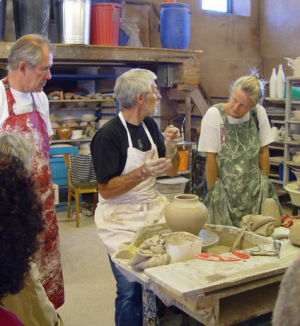
Have you ever spotted a student with outstanding potential?
I like a mixed group of students from beginners to very experienced. Some already have their own workshops and are refining skills and learning advanced techniques. Others just want to have a go and may never become excellent potters, but they still gain so much from the sheer pleasure of it.
The best students learn from me but also develop their own distinctive style. I once did a workshop in the Falls Road in Belfast and an elderly chap told me how his wife had persuaded him to go to night class and 'do something more than watch telly' after he retired from 50 years as a bricklayer. He had tried his hand at pottery and had been enjoying his new hobby for the last eighteen years. He was 93 years old.
What silly mishaps happen with students?
We have some floating pedals, which are not attached to the wheel, so it's easy to knock into them. If this happens and the wheel starts spinning then pots start flying. I have to admit I've done it myself so I can't just blame students!

Have you a top tip for pottery students?
Find a very good teacher. It's also essential to use good quality clay to get a result. I make all my own clay and my glazes; you can buy ready made but using the right clay is so essential.
How do you relax at the end of the day?
There's not much time before bed. We're in the studio into the evening then I close up the hens for the night and might watch the news but it's bed usually by 10pm.
I don't make pots to live. I live to make pots.
